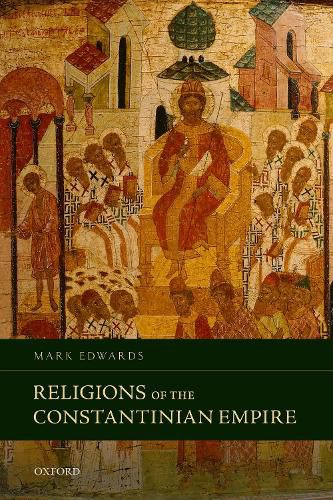Readings Newsletter
Become a Readings Member to make your shopping experience even easier.
Sign in or sign up for free!
You’re not far away from qualifying for FREE standard shipping within Australia
You’ve qualified for FREE standard shipping within Australia
The cart is loading…






Religions of the Constantinian Empire provides a synoptic review of Constantine’s relation to all the cultic and theological traditions of the Empire during the period from his seizure of power in the west in 306 CE; to the end of his reign as autocrat of both east and west in 337 CE;. Divided into three parts, the first considers the efforts of Christians to construct their own philosophy, and their own patterns of the philosophic life, in opposition to Platonism. The second assembles evidence of survival, variation or decay in religious practices which were never compulsory under Roman law. The religious plurality of the second section includes those cults which are represented as demonic burlesques of the sacraments by Firmicus Maternus. The third reviews the changes, both within the church and in the public sphere, which were undeniably prompted by the accession of a Christian monarch.
$9.00 standard shipping within Australia
FREE standard shipping within Australia for orders over $100.00
Express & International shipping calculated at checkout
Religions of the Constantinian Empire provides a synoptic review of Constantine’s relation to all the cultic and theological traditions of the Empire during the period from his seizure of power in the west in 306 CE; to the end of his reign as autocrat of both east and west in 337 CE;. Divided into three parts, the first considers the efforts of Christians to construct their own philosophy, and their own patterns of the philosophic life, in opposition to Platonism. The second assembles evidence of survival, variation or decay in religious practices which were never compulsory under Roman law. The religious plurality of the second section includes those cults which are represented as demonic burlesques of the sacraments by Firmicus Maternus. The third reviews the changes, both within the church and in the public sphere, which were undeniably prompted by the accession of a Christian monarch.